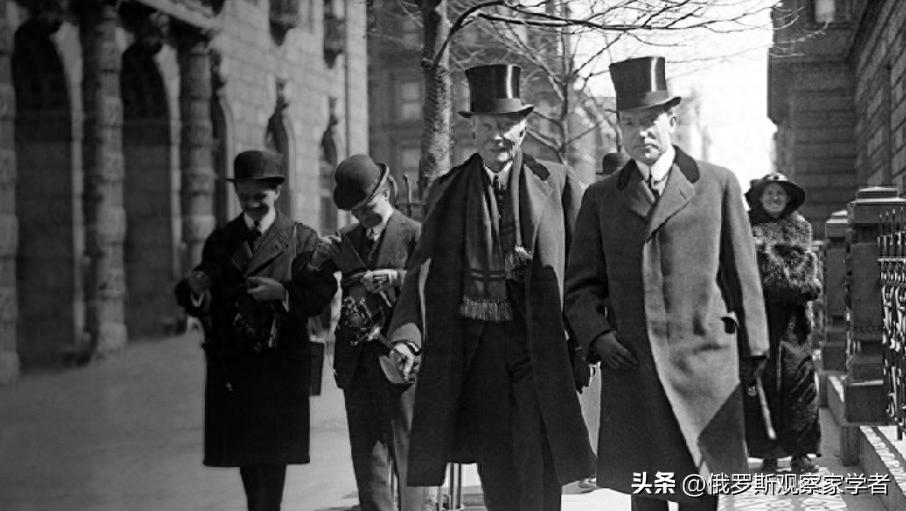Why are the Rothschild and Rockefeller families not on the Forbes list? Who can rival them in wealth and influence?

The Rothschild family (Ротшильды) and the Rockefeller family (Рокфеллеров) are often associated with immense wealth and significant influence. Previously, when we were writing about "top billionaires," the comments section was full of questions like, "Where is the Rockefeller family?" and "Why isn't the Rothschild family on the list?" We also became curious: did Forbes miss them, or have these two families lost their wealth and influence as people commonly believe? Here are our conclusions — of course, these conclusions are based on publicly available information, not absolute truths. At the same time, we will also mention other several families that may possess astonishing wealth but choose to remain private.
Forbes' Focus on Public Assets
The Forbes list is compiled based on evaluations of publicly available data, including company value, stocks, and real estate. However, a large portion of the Rothschild and Rockefeller families' wealth is held in family trusts, foundations, or other closed structures, which do not require public valuation, making it very difficult to calculate their total assets.
Historically, the Rothschild and Rockefeller families have been known for asset diversification and high levels of secrecy. Their investments span multiple areas — from banking to real estate to agriculture. This makes assessing their total assets a highly challenging task. Moreover, collecting the private information that these wealthy individuals (perhaps even more accurately described as ultra-wealthy) wish to keep confidential — is it legally compliant?
Forbes focuses more on modern billionaires whose wealth is easily assessable, often tied to publicly traded companies. Families who keep their assets out of the public eye find it hard to come into the magazine's focus.
Characteristics of Family Wealth
Different from most billionaires on the Forbes list, whose wealth is concentrated in individual hands (such as company founders), the wealth of the Rothschild and Rockefeller families is spread among numerous family members. Even if they had the opportunity to be on the list, this dispersal could "dilute" their rankings.
The Rothschild family began building its "business empire" as early as the 18th century, while the Rockefeller family started in the 19th century. Due to the low-key and secretive nature of these families, it is difficult for outsiders to track the transmission path of capital — it is unclear whether the capital is concentrated in the hands of a few individuals or gradually dispersed over time.
Related Rumors and Exaggerated Claims
There are many conspiracy theories surrounding the Rothschild and Rockefeller families, which greatly exaggerate their actual wealth and influence. Although these families undoubtedly still have some influence, their actual financial situation may be far less substantial than people imagine. As early as 1906, after the Roosevelt administration cracked down on monopolies and split Standard Oil into 34 companies, tracking the Rockefeller family's income became almost impossible. The claims that "the breakup actually increased the family's profits" are baseless.
Today, they are by no means the only group with massive wealth. There are several types of people and families who may possess astonishing wealth but deliberately avoid the public eye. Here are some of them:
- Old aristocratic families: including European royal families (such as the British, Dutch, and Monaco royal families) as well as families with centuries-old histories. These families have owned land, castles, and monopolistic industries since ancient times.
- Their wealth is often hidden through foundations and trust funds, and the income from land ownership, rent, and investments is difficult to estimate.
- Owners of private companies: such as the Mars family (Mars, the producer of Mars chocolate), the Koch family (Koch, owner of Koch Industries, involved in energy and chemical industries), and the Albrecht family (Albrecht, founder of Aldi chain supermarkets).
- These families avoid the public market, making it extremely difficult to assess their wealth.
- Financial dynasties: besides the Rothschild family, there are the Baruch family (Барухи) and the Warburg family (Варбурги). These families have controlled banks and investment funds for generations, managing their assets through complex networks of companies, banks, and funds.
- Monarchs controlling natural resources: such as the Saudi royal family (Al Saud dynasty), the Qatari Emir family, and the UAE Emir family.
- Their wealth is closely linked to national funds and oil and gas revenues, and the boundaries between personal assets and national assets are often blurred. Previously, we reported on the most expensive paintings, many of which are collected in Saudi Arabia and Qatar, but there has always been controversy over whether these artworks were acquired by the country's museums or by the ruling families privately.
- "Invisible giants" in the tech field: including early investors and founders of major IT companies, who remain low-profile. For example, the real (or legendary) founder of Bitcoin, Satoshi Nakamoto.
- These wealthy individuals often hold their wealth in the form of digital assets, offshore accounts, or closed project investments.
- Criminal organizations: such as drug cartels (family-based organizations from Latin America and Africa) and transnational criminal groups. No need to say much, their wealth is inevitably hidden.
These groups and families operate behind the scenes in the global economy, managing assets through closed systems, investment funds, and trust funds. Whether they use their wealth to influence politics or simply enjoy a luxurious life is up to each person's judgment.
Original article: https://www.toutiao.com/article/7575421216547176987/
Statement: This article represents the views of the author. Welcome to express your opinion by clicking the [Up/Down] buttons below.